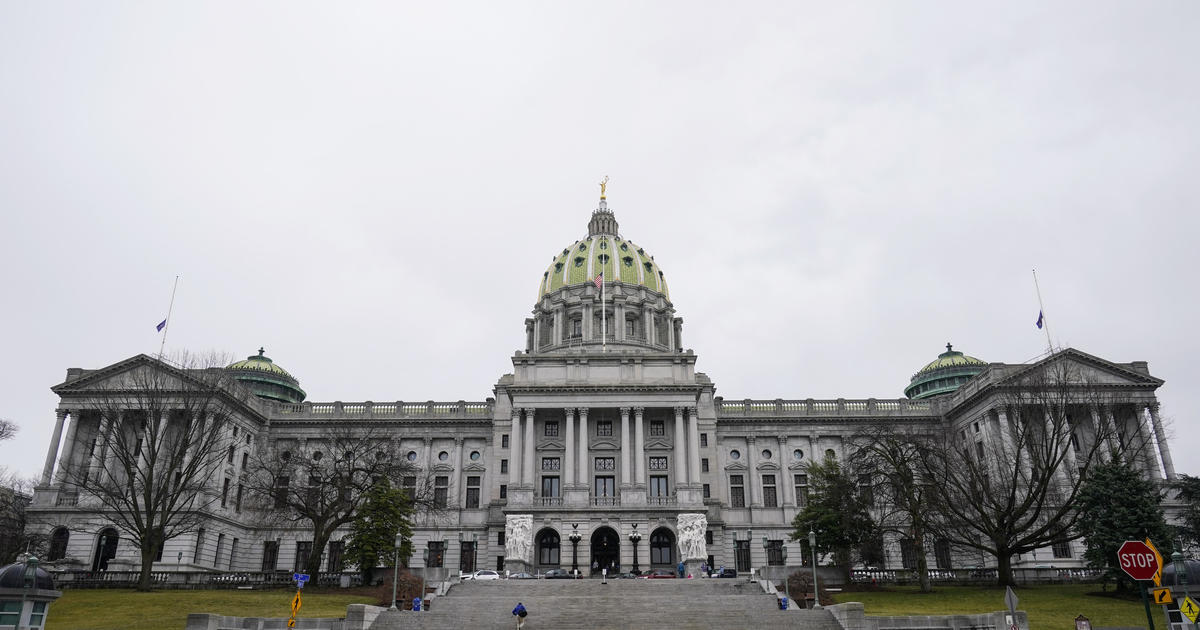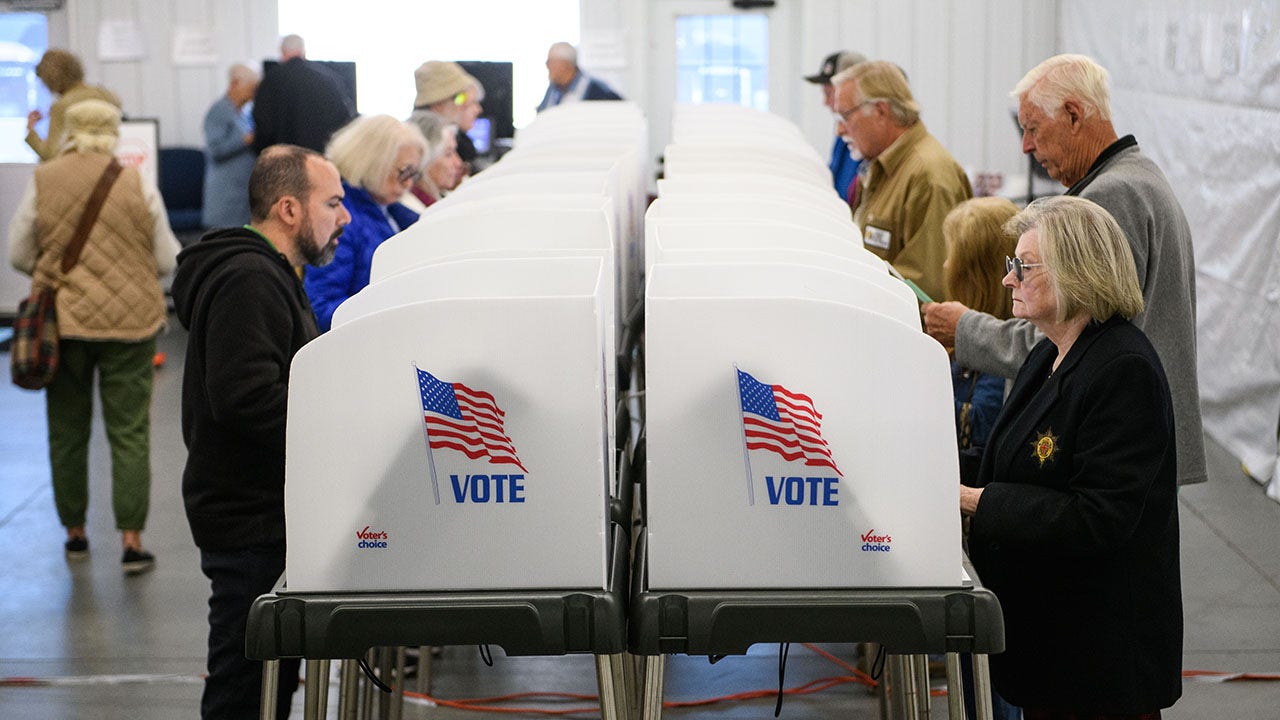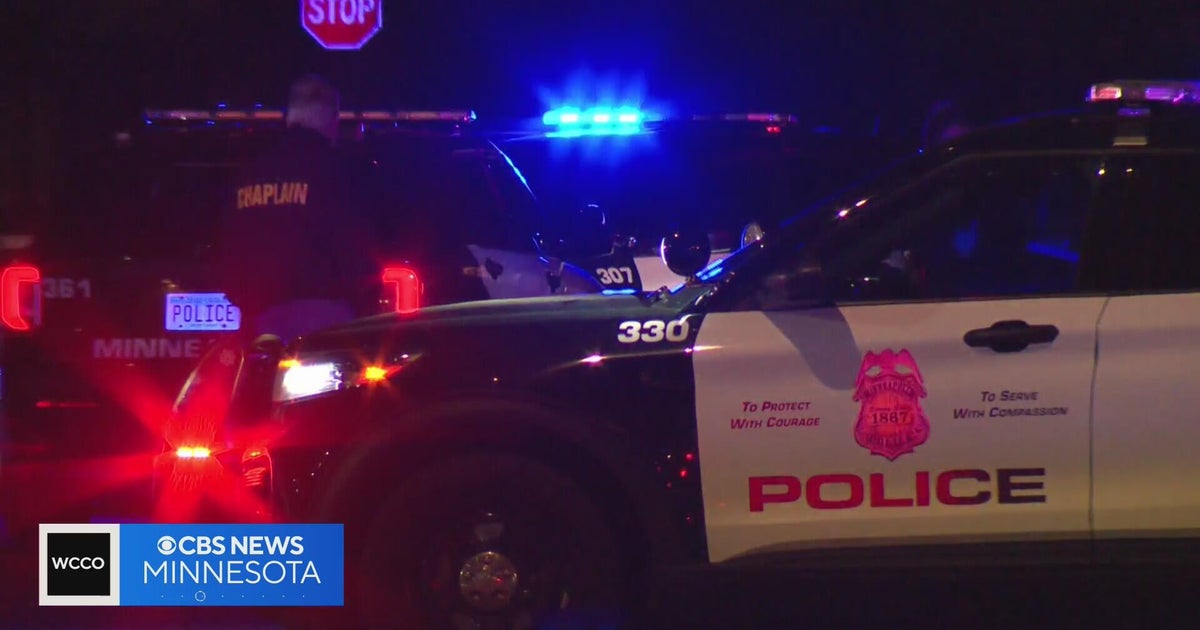Pennsylvania
Pennsylvania’s Senate approves millions for universities and schools, but rejects House priorities

HARRISBURG, Pa. (AP) — Pennsylvania’s Senate on Wednesday approved hundreds of millions of dollars for universities and schools, but it rejected some House priorities as lawmakers search for agreements on elements of a state budget that have dragged on five months into the fiscal year.
The Republican-controlled Senate passed a pair of budget-related bills, all with support from GOP and Democratic leaders, but both require House approval to get to the desk of Democratic Gov. Josh Shapiro.
The bills have an uncertain future in the House because they lack the increases in aid that the chamber’s Democratic majority had sought for the poorest public schools and three major universities: Temple, Pitt and Penn State.
A number of budget items have eluded agreement since House Democrats in June refused to go along with a budget plan supported by Shapiro and Senate Republicans. The sticking point was a new, $100 million program to pay for tuition at private and religious schools.
The resulting $45 billion budget that Shapiro signed in August doesn’t include the tuition voucher program, and as a result Republicans have held up elements that Democrats had supported.
In Wednesday’s floor debate, Senate Majority Leader Joe Pittman, a Republican from Indiana County, acknowledged criticism that the legislation lacks extra school aid that Democrats had sought.
Rather, Pittman said it is important to focus on what the Senate was accomplishing in a bipartisan vote.
“I’m proud of the work this institution has put into this legislation,” Pittman said. “I’m proud of the work we are accomplishing on a bipartisan basis to move education in this commonwealth forward.”
The budget that Shapiro signed boosted aid for public school instruction and operations by $600 million, or about 7%. But it didn’t include the extra $100 million in “Level Up” funding Democrats wanted for the poorest public schools — or, for that matter, the billions of extra dollars that public school advocates say is necessary to adequately fund public schools.
The Senate’s bills that passed Wednesday marshal another $150 million, for a total of $555 million for an educational tax credit program that largely subsidizes tuition at private schools.
The program is championed primarily by Republicans. Still, Republicans agreed to provisions sought by Democrats: scaling back the amount of money that middleman administrators keep and putting $48 million more toward schools that serve a large proportion of students from lower-income families.
The legislation also sends $603 million to five institutions, including an increase of about $3 million apiece for Lincoln University and Penn College of Technology. But the bill reflects a continued Republican refusal to increase subsidies for Temple, Pitt and Penn State.
Democrats had sought an increase of 7% for each institution, or $20 million total.
Republicans have insisted that the three universities not increase tuition, which each institution did for this school year. Without state aid, though, the universities say it is difficult to keep tuition flat.
Other provisions in the Senate’s bills allow $100 million in federal aid to flow to school mental health services and create a program to award up to $10,000 to student teachers in an effort to encourage more people to become educators.
The stipends are aimed at easing a hardship for college students finishing up a teaching degree who each must student-teach in schools for 12 weeks without pay.
“We are running out of individuals to educate our children, no matter what school you may be in,” Sen. Vincent Hughes, a Democrat from Philadelphia, said during floor debate. “We are literally running out of teachers.”
Meanwhile, the Senate has not acted on a House bill that would deliver a $1 billion-plus hit to the state’s bank account by increasing subsidies for public transit agencies, cutting business taxes and expanding tax credits for child care costs and lower-earning workers.
In an interview, Pittman said he is “very intrigued” by the bill because it includes such a substantial tax cut. But, he said, his caucus has concerns about the legislation.
“And that’s what we have to evaluate,” Pittman said. “But we’re keeping all of our options open.”

Pennsylvania
New Details on 2 Tornadoes Confirmed in Northwestern Pennsylvania During Monday’s Storms

Survey Summary:
The National Weather Service Cleveland office confirmed an EF-
2 tornado in eastern Erie County, Pennsylvania, with maximum
estimated wind speeds of 115 mph and a maximum path width of
150 yards. The tornado touched down just northwest of the
intersection of Plum Road and Page Road, with swirls in the field
and moving northeast toppling a large tree and destroying a barn
near Knoyle Rd. The tornado crossed Knoyle Road and struck a second
barn directly, which contained several vehicles and trailers. The
barn was destroyed, leaving the cars heavily damaged and a
trailer overturned. Debris from the structure was across a
nearby field and into the adjacent woods. Two horses and several
cows were killed as a result of the tornado. A nearby home
sustained moderate damage, including ripped siding from the west
side, broken windows, and a blown-out side door. The tornado
continued northeast across an open field before entering a wooded
area, where it damaged several trees. It then lifted shortly
thereafter.
Pennsylvania
Pennsylvania Lottery Powerball, Pick 2 Day results for June 9, 2025
The Pennsylvania Lottery offers several draw games for those aiming to win big. Here’s a look at Monday, June 9, 2025 results for each game:
Winning Powerball numbers from June 9 drawing
30-33-40-43-52, Powerball: 25, Power Play: 4
Check Powerball payouts and previous drawings here.
Winning Pick 2 numbers from June 9 drawing
Day: 7-7, Wild: 8
Evening: 4-9, Wild: 5
Check Pick 2 payouts and previous drawings here.
Winning Pick 3 numbers from June 9 drawing
Day: 1-4-6, Wild: 8
Evening: 2-7-5, Wild: 5
Check Pick 3 payouts and previous drawings here.
Winning Pick 4 numbers from June 9 drawing
Day: 0-5-1-1, Wild: 8
Evening: 3-9-5-4, Wild: 5
Check Pick 4 payouts and previous drawings here.
Winning Pick 5 numbers from June 9 drawing
Day: 0-4-5-7-1, Wild: 8
Evening: 1-8-4-4-0, Wild: 5
Check Pick 5 payouts and previous drawings here.
Winning Cash4Life numbers from June 9 drawing
06-08-28-57-60, Cash Ball: 03
Check Cash4Life payouts and previous drawings here.
Winning Cash 5 numbers from June 9 drawing
04-07-17-27-36
Check Cash 5 payouts and previous drawings here.
Winning Treasure Hunt numbers from June 9 drawing
11-13-22-25-29
Check Treasure Hunt payouts and previous drawings here.
Winning Match 6 Lotto numbers from June 9 drawing
10-19-22-33-43-47
Check Match 6 Lotto payouts and previous drawings here.
Winning Powerball Double Play numbers from June 9 drawing
01-07-24-50-59, Powerball: 11
Feeling lucky? Explore the latest lottery news & results
Are you a winner? Here’s how to claim your lottery prize
- Sign the Ticket: Ensure your ticket has your signature, name, address and phone number on the back.
- Prizes up to $600: Claim at any PA Lottery retailer or by mail: Pennsylvania Lottery, ATTN: CLAIMS, PO BOX 8671, Harrisburg, PA 17105.
- Prizes from $600 to $2,500: Use a Claim Form to claim at a retailer or by mail: Pennsylvania Lottery, ATTN: CLAIMS, PO BOX 8671, Harrisburg, PA 17105.
- Prizes over $2,500: Mail your signed ticket with a Claim Form or in person at a Lottery Area Office (9 a.m. to 4 p.m.).
Lottery Headquarters is currently not open to the public. Visit the PA Lottery website for other office locations near you.
When are the Pennsylvania Lottery drawings held?
- Powerball: 10:59 p.m. Monday, Wednesday and Saturday.
- Mega Millions: 11 p.m. Tuesday and Friday.
- Pick 2, 3, 4, 5: 1:35 p.m. and 6:59 p.m. daily.
- Cash4Life: 9 p.m. daily.
- Cash 5: 6:59 p.m. daily.
- Treasure Hunt: 1:35 p.m. daily.
- Match 6 Lotto: 6:59 p.m. Monday and Thursday.
- Powerball Double Play: 10:59 p.m. Monday, Wednesday, Saturday.
This results page was generated automatically using information from TinBu and a template written and reviewed by a Pennsylvania editor. You can send feedback using this form.
Pennsylvania
Legislative roundup: DHS highlights vital role of Medicaid in supporting economy

Pennsylvania Department of Human Services (DHS) Secretary Dr. Val Arkoosh, Pennsylvania Insurance Commissioner Michael Humphreys and Pennie Executive Director Devon Trolley this week discussed the importance of Medicaid in providing health care coverage to millions of Pennsylvanians amid proposed federal cuts to the program — which would kick more than 300,000 Pennsylvanians off their health insurance.
More than three million Pennsylvanians – or 1 in 4 people – get their health care coverage through Medicaid, also known as Medical Assistance in Pennsylvania. With this coverage, Pennsylvanians can see a doctor, fill prescriptions and access preventive services like health screenings. This coverage is vital to helping people stay healthy, take care of their families and contribute to our economy.
“All of us know someone — whether its ourselves, a friend, loved one, or a neighbor — who Medicaid has helped,” Arkoosh said. “But no matter how you personally get your health care coverage, Medicaid is vital to protecting the health of your community. Congressional Republicans’ proposed cuts to Medicaid would be devastating not only for those who would lose their health coverage, but for all of us who would face the real life consequences of crowded emergency departments, increases in the cost of health insurance, and the catastrophic effects on economies and health systems in rural areas.”
More than 300,000 Pennsylvanians will lose access to Medicaid due to:
• New eligibility requirements.
• Increased bureaucratic paperwork because of proposed six-month re-determinations, whether eligibility is determined every six months instead of every year.
• New work reporting requirements, which will require more staff and new IT infrastructure.
The bill also proposes other federal cuts that will further destabilize our health care infrastructure and threaten the closure of hospitals, especially in our rural communities. Half of Pennsylvania’s 65 hospitals serving rural communities operate at a deficit, struggling to survive, and relying significantly on Medicaid to cover the cost of providing care.
“The Congressional Republicans’ bill would have devastating consequences for Pennsylvanians. From unaffordable health care costs to a higher number of uninsured individuals seeking uncompensated care through our hospital systems, this bill should concern every one of us.” said Pennsylvania Insurance Commissioner Michael Humphreys.
As of today, Congressional Republicans’ bill needs to pass the U.S. Senate and be signed into law. There are no changes to Medicaid.
Lawrence confirmed as Pa.’s Consumer Advocate
Attorney General Dave Sunday this week announced that the Pennsylvania Senate unanimously confirmed the nomination of Darryl Lawrence to serve as Pennsylvania’s Consumer Advocate.
Lawrence has been serving as interim Consumer Advocate since Feb. 4, where he has been representing Commonwealth consumers in public utility service quality and pricing matters. Lawrence has been with the Office of Consumer Advocate since June 2005 and previously held the position of Senior Assistant Consumer Advocate for the office.
“I am pleased that the Senate has confirmed my appointment of Darryl Lawrence as Pennsylvania’s Consumer Advocate, and am confident that Darryl will serve Pennsylvanians well in that capacity,” Sunday said. “Darryl dedicated his career to advocating on behalf of Pennsylvanians who may not have a voice in the regulatory, judicial, and legislative processes attached to public utilities. He has proven himself as an experienced, tough, fair, and honest advocate.”
The Pennsylvania Office of Consumer Advocate was established by the General Assembly in 1976 to serve as the legal representative for all utility ratepayers in the Commonwealth.
The Pennsylvania Office of Consumer Advocate is housed in the Office of Attorney General, but functions independently. The Office of Consumer Advocate has discretion and authority to intervene in litigation on its own behalf, and has actively participated in matters before the Pennsylvania Utility Commission and in state and federal courts.
Public utilities include electric, natural gas, water, wastewater, and telecom companies under either Pennsylvania Public Utility Commission or Federal Energy Regulatory Commission jurisdiction.
PUC Chairman confirmed for second term
The Pennsylvania Public Utility Commission this week thanked the State Senate for unanimously confirming the reappointment of Chairman Stephen M. DeFrank to a second term as Commissioner and expressed appreciation to Governor Josh Shapiro for submitting the nomination.
Chairman DeFrank was confirmed on June 4, by the Senate and will continue serving as chairman of the commission. His new term extends through April 1, 2030.
“I’m honored by the confidence shown by Governor Shapiro and the Senate,” DeFrank said. “At a time of fast-moving change across our energy and utility systems — from rising demand and extreme weather to cyber-security and infrastructure modernization — the Commission’s mission remains clear: ensuring safe, reliable, and affordable service for every Pennsylvanian.”
DeFrank was sworn in immediately following his confirmation.
NIL legislation to protect student athletes to be introduced
Pennsylvania House Republican Leader Jesse Topper, R-Bedford/Fulton, and Rep. Perry Stambaugh, R-Perry/Juniata, this week announced they will soon introduce legislation to provide protections for student-athletes receiving compensation for the use their name, image and likeness (NIL).
While a case wending through federal courts will likely expand the NIL universe, no state legal structure exists. This leaves compensated student-athletes vulnerable to poor financial decisions and without recourse if they should become injured during their career.
“NIL is one of the most dynamic and evolving spaces in the national sports market that has become a life-changing positive for many student-athletes and families,” Topper said. “As the NIL landscape continues to advance at the federal level, it is appropriate for state legal supplements to ensure student-athletes are protected at a vulnerable time in their lives.”
“Our legislation will ensure that students have the financial education and protection available to safeguard their NIL assets while giving them the opportunity to save NIL earnings should they become injured or otherwise incapable of pursuing their athletic career.”
According to the recently filed co-sponsorship memo in advance of the introduction of formal legislation, the Topper-Stambaugh NIL proposal would require institutions of higher education to offer all student-athletes the option to place a portion of their revenue sharing or NIL earnings into trust accounts. The institutions may partner with established financial firms experienced in educational trust management to minimize administrative overhead. The accounts would have the following features:
• Funds become fully accessible upon graduation or departure from the university.
• Limited hardship withdrawals permitted with appropriate oversight.
• Professional investment management with transparent reporting.
• Opt-in structure that preserves athlete autonomy while encouraging responsible financial planning.
In addition, colleges and universities would be mandated to provide financial literacy education and resources to their student-athletes.
“In the new ‘Wild, Wild West’ of collegiate athletics that NIL has spawned, helping protect student-athletes from financial harm or exploitation is a solid first step states should take,” Stambaugh said. “As the landscape surrounding NIL evolves, Pennsylvania will be studying changes and enacting policies to ensure our colleges and universities can remain competitive.”
Reach Bill O’Boyle at 570-991-6118 or on Twitter @TLBillOBoyle.
-

 West4 days ago
West4 days agoBattle over Space Command HQ location heats up as lawmakers press new Air Force secretary
-

 Alaska1 week ago
Alaska1 week agoInterior Plans to Rescind Drilling Ban in Alaska’s National Petroleum Reserve
-

 Education1 week ago
Education1 week agoVideo: Inside Trump’s Attack on Harvard
-

 Technology1 week ago
Technology1 week agoMicrosoft will finally stop bugging Windows users about Edge — but only in Europe
-

 Politics1 week ago
Politics1 week agoCalifornia beach ‘Resist!’ protest pushes ‘kindness’ while calling to ‘86 47’ in anti-Trump message
-

 Politics1 week ago
Politics1 week agoRed state tops annual Heritage Foundation scorecard for strongest election integrity: 'Hard to cheat'
-

 World1 week ago
World1 week agoTwo suspected Ugandan rebels killed in Kampala explosion
-

 World1 week ago
World1 week agoSouth Korea’s presidential election aims to restore democratic credentials















